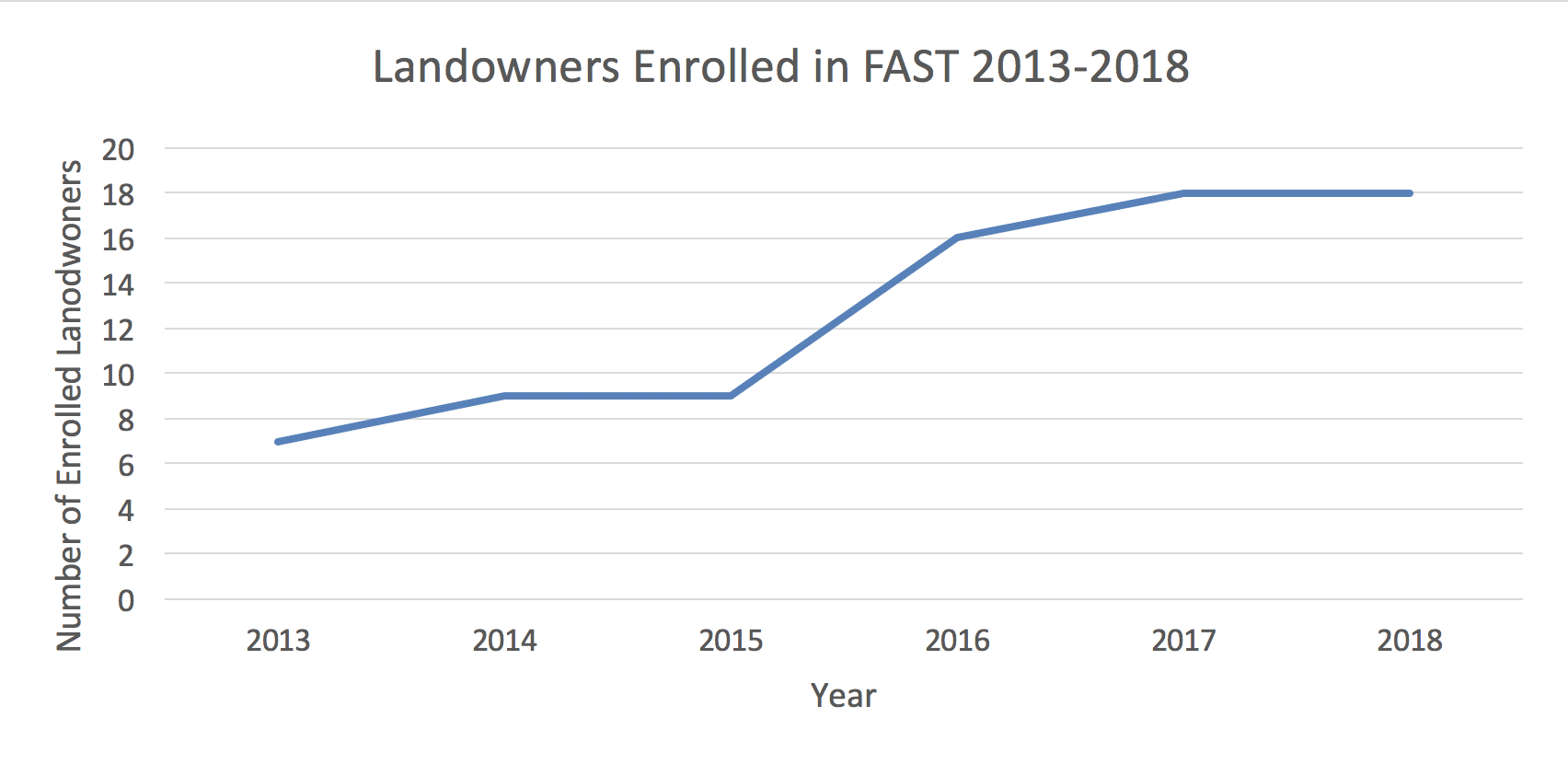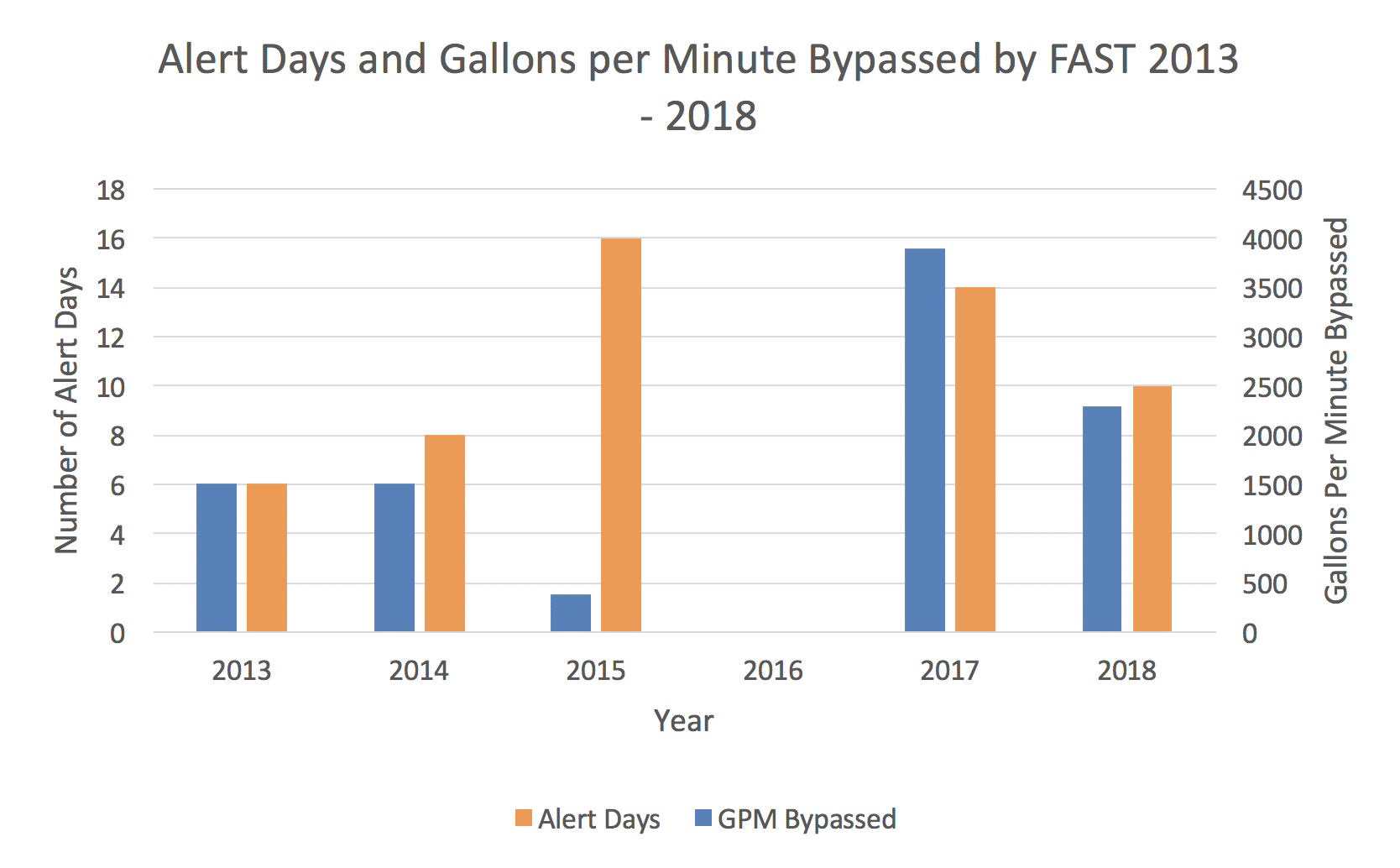Handing over the reins
At the end of 2018, we handed over the reins of a major conservation program. That was our intention from the start.
The Fifteenmile Action to Stabilize Temperature (FAST) is an innovative program dreamed of and developed in 2013 to protect endangered fish species in Fifteenmile Creek. FAST uses a predictive model that combines climate and streamflow information to forecast water temperatures at five sites throughout the watershed.
When the model predicts stream temperatures lethal to ESA-listed threatened steelhead — 72 degrees or higher — at two or more sites for two or more days, the locally based flow restoration coordinator initiates an automatic phone alert to irrigators, notifying them of a need to reduce diversions and keep more water instream.
Since the implementation of FAST, no fish kills have been observed in Fifteenmile Creek, despite record high temperatures and low flows.
It’s a major improvement from a few years ago.
Fed by snowmelt from the flanks of Mt. Hood, the 54-mile long tributary of the Columbia River has long supported anadromous fish. But during the summer of 2009, there was a shortage of the cool water that lamprey, steelhead and Chinook need to survive. During a stretch of hot, dry weather, flows plummeted. Stream temperatures climbed, killing thousands of fish.
Under the Endangered Species Act (ESA), people can be held civilly and criminally liable for any activity that harms listed species. So the fish kill prompted local farmers, state agencies, nonprofits, and members of the Fifteenmile Watershed Council to explore options for improving water quality and quantity, while still keeping their irrigated farmland productive. That’s how FAST emerged.

To get the program off the ground, TFT worked with the Wasco County Soil and Water Conservation District (WCSWCD), the Fifteenmile Watershed Council, and many other stakeholders, with support from the Oregon Watershed Enhancement Board and the Columbia Basin Water Transactions Program.
Since the beginning, WCSWCD has served as a key administrator and helped FAST grow from a pilot to a mature, award-winning conservation program.

2015 was a record hot and dry year. While many alert days occurred, stream flow was so low that almost every irrigator in the watershed was already regulated off, that is, they already couldn’t divert water so they were unable to participate. 2016 saw unusually high flows that sustained cooler instream temperatures, resulting in zero alerts days being called.
Yet in order for programs like this to scale, TFT cannot be the only one at the helm or picking up every shovel.
Local partners are critical to the long-term recovery of native species in any basin. Personal connections to landowners and intimate knowledge of the waterways are critical to successfully implementing long-standing conservation programs.
That’s why 2019 will mark the first year when WCSWCD assumes complete management of FAST.
Moving forward, WCSWCD will assume sole responsibility for landowner recruitment and enrollment, contracting, securing program funding, monitoring participation during alerts, calculating and distributing payments, and program evaluation and reporting.
Handing over the management of programs like this frees TFT to continue focusing efforts on dreaming and developing new innovative conservation and restoration programs.
This is what accelerating the pace and scale of freshwater conservation and restoration looks like.
January 4, 2019
#esa #FAST #local partners #water quality
Enjoying Streamside?
This is a space of insight and commentary on how people, business, data and technology shape and impact the world of water. Subscribe and stay up-to-date.
Subscribe- Year in Review: 2023 Highlights
By Ben Wyatt - Report: Leveraging Analytics & Funding for Restoration
By Joe Whitworth - Report: Transparency & Transformational Change
By Joe Whitworth - On-the-Ground Action – Made Possible By You
By Haley Walker - A Report Representing Momentum
By Joe Whitworth

